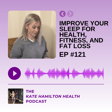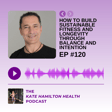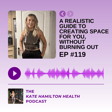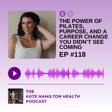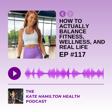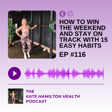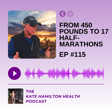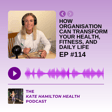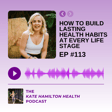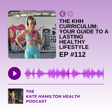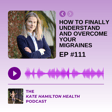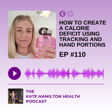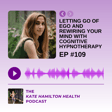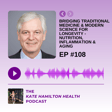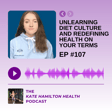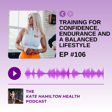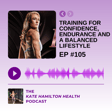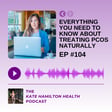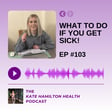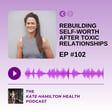
#98: Sarah Woulfe: Unlock your true potential, break free from fear and find inner balance
In this episode of the Kate Hamilton Health Podcast, I sit down with Sarah Woulfe, a certified mindset coach specializing in NLP, EFT, CBT, and mindfulness. Together, we dive deep into the world of mindset and emotional healing, exploring powerful techniques like EFT tapping and matrix reimprinting that can help release trauma, shift perspectives, and unlock your true potential.
Sarah shares her inspiring personal journey of overcoming self-doubt, negativity, and fear while rebuilding her confidence and embracing her authentic self. We also discuss the dynamics of internal versus external validation, how the ego impacts our decisions, and why redefining success is key to living a balanced life. Plus, Sarah introduces practical tools like gratitude journaling, morning routines, and mindfulness practices to support emotional well-being.
Whether you're looking to deepen your self-awareness or gain actionable insights to enhance your mindset, this episode is packed with value!
Episode Highlights
[00:00] - Welcome to the Kate Hamilton Health Podcast
[00:13] - Meet Sarah Woulfe: Mindset Coach and Healing Expert
[00:41] - Exploring transformative mindset techniques
[03:08] - Sarah’s personal story of overcoming negativity
[04:33] - The magic of EFT tapping and emotional release
[05:25] - How EFT can shift trauma and unlock potential
[11:51] - Matrix reimprinting explained: A tool for deeper healing
[13:15] - Understanding and addressing childhood trauma
[19:21] - Inner child work: Connecting with and healing past wounds
[22:12] - Redefining success and understanding the role of ego
[30:22] - How ego shapes reality and impacts authenticity
[32:18] - Balancing ego and your true self in adulthood
[32:58] - Why meditation and mindfulness are life-changing
[43:28] - Navigating social media while protecting personal boundaries
[49:02] - The irreplaceable value of human connection
[54:10] - Final reflections on mindset, healing, and authenticity
Links & Resources:
- Connect with Sarah Woulfe on Instagram here
If you enjoyed this episode, please subscribe, leave a review, and share it with friends who might benefit. For more health and fitness tips, follow me on Instagram and TikTok @katehamiltonhealth.
Music b LiQWYD Free download: hypeddit.com/link/xxtopb [http://hypeddit.com/link/xxtopb] Promoted by FreeMusicPromo [https://www.youtube.com/channel/UCbycji-eySnM3WD8mbxPUSQ] / @freemusicpromo
